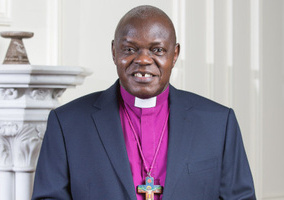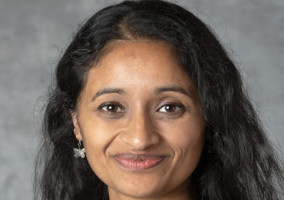Christian Aid has reported a 14% decrease in its annual income as the international development charity undergoes a major restructure.
The charity recorded an operating deficit in the year to March 2025 as its income fell to £71.4m while its costs declined by a smaller margin to £77.0m, its accounts filed on Companies House this week show.
Its funding decline was driven by a more than £10m drop in institutional grants, including an around £6m fall in money from the United Nations World Food Programme (£2.3m, down from £8.2m in 2023-24).
However, the charity’s voluntary income was largely unchanged year-on-year, with £52.2m received through donations and legacies in 2024-25.
Meanwhile, the charity’s total staff headcount fell by 91 year-on-year to 666, with overseas roles declining by 20% to 339.
The report’s publication follows Christian Aid’s announcement in April that it aims to reduce its staff numbers to around 400 as part of an international restructure.
Its accounts read: “The new model and organisation design was approved by the board in March 2025, and we expect it to be fully in place by the end of April 2026.
“A dedicated transformation team has been established to support the transition to the new model and to guide us through this period of change in the most effective and supportive way possible, as we undertake a careful transition to a smaller staff.”
60% voluntary income target
Partly due to the decrease in institutional funding, Christian Aid exceeded its target to generate 60% of its income from voluntary sources in 2024-25.
While the percentage aim was “originally a strategic decision around the shape and type of organisation we wanted to become; it has set us up well to withstand the shocks of the recent downturn in institutional income,” the charity said.
Christian Aid recorded a “significant increase in new regular giving compared to previous years”, but this source of income still trails pre-pandemic levels, with nearly £99.2m fundraised overall in 2019-20.
“While we have met our income targets and made significant progress in voluntary income and private sector engagement, institutional income fell below budget,” the accounts read.
“This is partly the result of aid cuts, including the termination of USAID funding and unexpected contract losses.”
A spokesperson for Christian Aid added: “We are pleased that voluntary income from our generous individual supporters was strong, with legacies and regular gifts providing a critical foundation for our global work, but it was not enough to make up for the institutional decline.”
Delayed recruitment of diversity lead
Christian Aid said it has taken further steps in 2024-25 to integrate decolonisation and anti-racism principles into its policies and practices, including increased diversity in its leadership and “value-based behaviours” introduced into its recruitment and performance management.
The charity made changes to its long-term fixed-term contracts “to address inequalities in contracting arrangements” and delivered power, privilege and anti-bias training in an effort to create a more inclusive workplace.
However, it said: “Progress on diversity, equity, inclusion and belonging (DEIB) initiatives has been slower than anticipated, as we delayed recruiting to the critical role of a DEIB lead to ensure that recruitment coincides with our transformation agenda.
“More work is needed to embed our values consistently. Through our new organisational model, we will intentionally shift more power and resources to partners, with the goal of being more responsive and accountable to people living in poverty.
“We are also taking steps to strengthen programme perspectives in our leadership team.”
The charity previously employed Kamna Patel as its principal advisor on race and diversity in 2021, but she returned to University College London when her secondment ended in 2023.
A spokesperson for Christian Aid told Civil Society it appointed a DEIB lead recently, after the accounting period ended.
Editor's note: This article was updated on 27 November 2025 with further information from a Christian Aid spokesperson.












